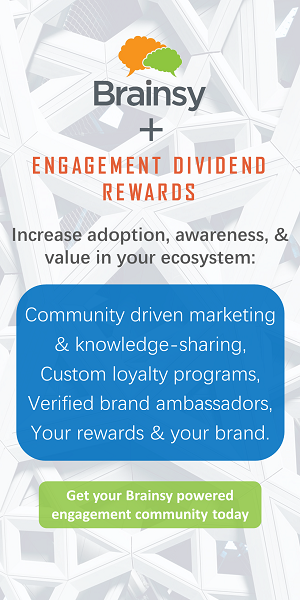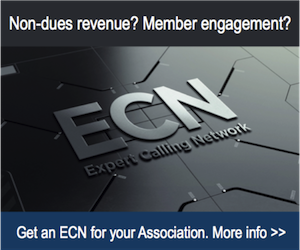Tags
marketing automation marketing strategy copywriting email marketing inbound methodology public relations strategy brand management B2B marketing strategy lead generation media relations
Biography
Rachel hails from music-city Nashville, Tennessee where she got her start in marketing and public relations in the country music scene. Her experience ranges from writing copy for shot gun shells and jib furlers (now she’s writing Ruby and JavaScript) to creating rebranding strategies for 100-year-old nonprofit organizations. From the music, outdoor, textiles, nonprofit, and government sector, Rachel found herself in the tech industry – where she’d like to stay. She’s VP of Marketing for Gorilla Logic, an award-winning software consultancy servicing the Fortune 100 and 500. Rachel has a rough time with idle time, so she also co-founded the Colorado Women’s Cycling Project, co-organizes MTN Tech Marketing Meetup Group, Wednesday Morning Velo and Boulder Startup Week, is a current board member for the Downtown Boulder Initiative, women’s committee member for the Bicycle Racing Association of Colorado (and former BoD member), and current advisory board member to the Denver Nordic Association, Opera Denver, and Inside the Orchestra. Her athletic ADD is just as bad, diving into new sports as quickly as she can obtain the gear. She’s an elite road and mountain biker, daily hot yoga addict, avid climber, trail runner, nordic skier, and is dabbling in biathlon after a failed attempt at motocross.
Certifications & Awards
2016 Colorado Technology Association's Women in Technology Conference Luminary
2016 40 Under 40 in the Boulder Valley
2016 Google Analytics Certification
2015 Inbound Certification
2015 Hubspot Certification
2014 Denver Business Journal CMO of the Year Finalist
2014 GenXYZ Top 25 Most Influential Young Professionals in Colorado
2014 Tremendous Twenty-Something Award Winner by ColoradoBiz Magazine
2013 USA Cycling’s Women’s Club of the Year
2009 Certificate of Hosiery, Hosiery Technology Institute
Other
Certifications
Certificate of Hosiery
Hosiery Technology Institute
Marketing Automation & Sales Enablement Specialist
Google (5323750219710464)
January 2016 - June 2017
The key difference I see between my B2C and B2B clients are sales cyles, ad spends, lead generation tactics and target audiences.
In B2C, it's often very difficult to identify the exact person you need to reach. You can identify cohorts, cookie the crap out of customers visiting your website, or interact individually with them on social, but when you're trying to find a product market fit, this can be difficult to gauge at first. In B2B, your target is more lazer focused. You might be able to know not only the exact job title and pain points of your customer, but you know their name, who they report to, and what their budget is to spend on your product or service. This allows for more insight into what your marketing spend will be.
But even if you know who exactly who your target is, in B2B you might have several decision makers at one company that all have a different problem in mind. You'll have to address that and understand who influences decisions and who actually gets to make the final call. This is one of the reasons why sales cycles can be so long in a B2B play. That and it's obviously a much larger purchase than a $10.00 widget for a B2C company.
That being said, B2B marketers often have to build relationships with their customers. More so than B2C. When was the last time a big brand like Coke interacted with you? Personally, I think a lot more content, depth and expertise must go into B2B marketing than B2C because of those factors mentioned above.
Despite being able to track almost every action your customers make, lead generation is very difficult for B2B companies in comparison to B2C in my opinion. I've seen studies that say "Other" is the biggest reason leads come in the door for B2B organizations. What is that? I read this quote and it couldn't be more true:
“Rather than focus on a single silver lead bullet, understand that B2B lead generation is a composite of unquantifiable activities and behaviors that just work. Basically, even smart people don’t really know where their leads are coming from all the time. A lot of getting “leads” has to do with a lifestyle of consistent marketing efforts, a constant cultivation of industry relationships, and the organic mashup of all kinds of interactions, activities, behaviors, and efforts.”
https://blog.crazyegg.com/2014/04/14/b2b-lead-gen/
Yes! Fundamentaly, marketing takes a lot of the same approaches across several different industries. The way and speed in which you do it is different depending upon the organization and industry you're in. Hopefully some of these steps below will help you.
1. Admit when you don't know something. The quickest way to show that you don't know what you're doing is to pretend like you do.
2. As it relates to number 1, try to figure out a solution before asking a million questions. If you want to annoy an engineer, just ask a question that could be googled and figured out in a matter of seconds. I have a 5 minute rule - if you can't figure it out in 5 minutes, then go ask.
3. Earn street cred. If you're working in tech, you better know more than just talking the talk. When I started, I learned JavaScript and Ruby. You don't have to be an engineer, but I promise, if you show interest in what you're team is building and in their jobs, you will be able to market your product or service much more easily. It's like attempting to speak French in France. This is true for any industry though. I previously worked in textiles so I went to hosiery technology school (yes it is a thing). After that training, our marketing positioning changed completely. Now that brand is the first in class in it's industry.
4. Marketing in the tech industry is VERY different depending on the size of your organization. If you'd like to be a specialist in your field, then join a larger organization that has more team members doing specific tasks. If you want to be a generalist, consider joining a startup environment where you learn and execute on just about marketing function.
5. Simply ask someone in the tech industry that you admire if you can have a 30 minute chat with them. That could eventually lead to a shadow day, an internship or even a job if you're eager enough. I've had countless coffees, video chats, and even twitter conversations that
6. Embrace forever learning. Autodidacts are respected just as much as those with a pedigree. Marketing changes so quickly (as does the technology industry) so you have to be willing to learn and relearn. Demonstrating that you're a lifelong learner will go far with the right technology organization. There are a lot of free and paid courses out there that help you become a technical marketer. There's no excuse - teach yourself even if you don't have the job yet.
7. Put yourself out there and go network. Just like any industry, there are factions that meet regularly. Go to a hackathon. Participate in a recruiting event. Join a meetup group. There are so many opportunities online and offline to participate in the tech industry. And most of the time it's the marketers who are making the events happen. I've hired several folks who joined one of my events and were on the job hunt.
Two words - software engineers. I always say befriending software engineers makes marketing infinitely more exciting. Any marketing trends I've seen are influenced by what engineers were talking about three years prior. Also, adopting an engineering mindset not only allows you to provide better data-driven decisions, but to work more quickly utilizing the latest technology applications. If I can write and run my own SQL queries, know what is the upcoming change that will affect page rank of my clients' sites, or how to work with Google's latest suite of tools, marketing has just gone from "hand-wavy" to scientific in the approach.

